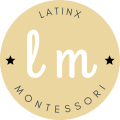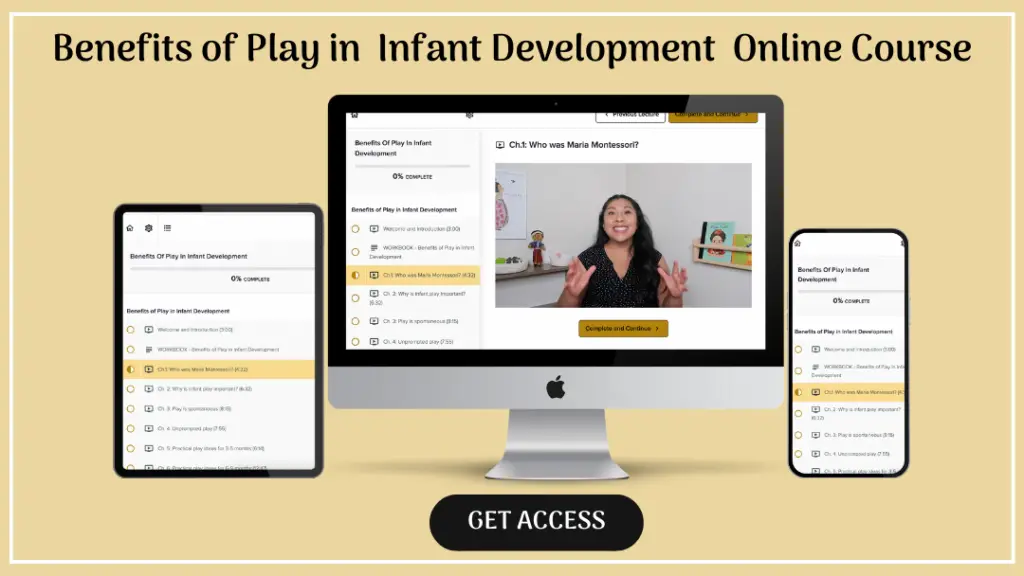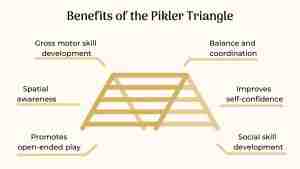
A Complete Guide to The Sensitive Periods Of Development In Montessori
How to recognize and support sensitive periods in your child’s development
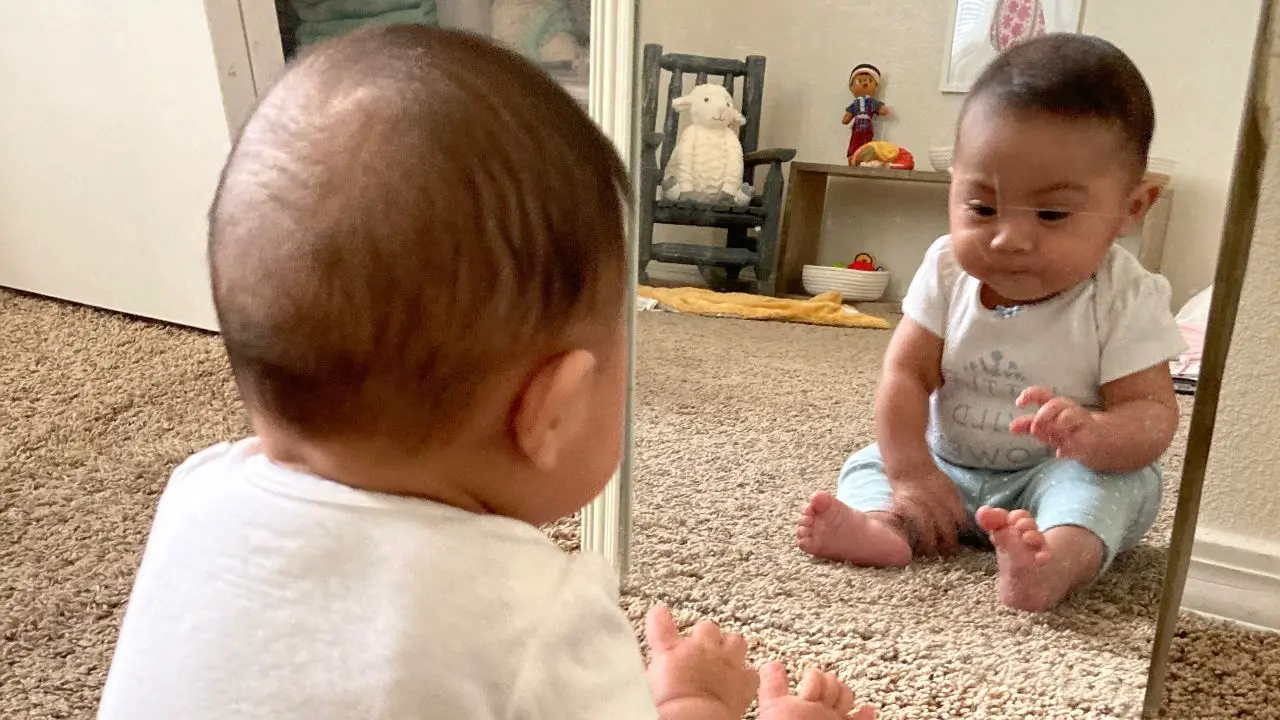
*Disclosure: I only recommend products I would use myself and all opinions expressed here are our own. This post may contain affiliate links that at no additional cost to you, I may earn a small commission. Thank you for your support!
Share this post
Maria Montessori’s theory of sensitive periods sheds light on a child’s developmental journey and the crucial role that these periods play in shaping their learning experiences.
This article will explore these Montessori sensitive periods and the significance they hold in fostering a child’s growth and development. A deeper understanding of these periods can help parents, teachers, and caregivers provide a supportive and nourishing environment that nurtures the child’s full potential.
Get ready to delve into the fascinating world of Maria Montessori’s sensitive periods.
Montessori sensitive periods of development
Sensitive periods, in the context of Montessori education, are specific windows of time during a child’s development when they are particularly receptive to learning certain skills or acquiring certain knowledge.
During these periods, children have a heightened sensitivity and greater capacity for learning, and they are naturally drawn to activities and experiences that will help them to develop specific skills and abilities.
According to Maria Montessori, the founder of the Montessori method of education, these sensitive periods are a result of the child’s innate drive to learn and their need to interact with the environment in order to develop their full potential.
By recognizing and supporting these sensitive periods, Montessori education seeks to create an environment that nurtures the child’s natural instincts and supports their development in a holistic manner.
The 11 Montessori sensitive periods are:
- Language
- Refining the senses
- Movement
- Order
- Small objects
- Assimilation of Images
- Grace and courtesy
- Music
- Reading
- Writing
- Mathematics
1. The Montessori sensitive period for language (birth to age 6)
The sensitive period for language begins at birth and continues until around six years old. During this time, children are particularly receptive to new sounds and words, and they have a natural drive to understand and communicate with others.
Children at this stage are constantly exploring and experimenting with sounds and words, and they are eager to learn the meaning of words and the rules of grammar.
Example of sensory period for language: Parents and caregivers can support the sensitive period for language by reading to children, engaging in conversations with them, and encouraging them to express themselves through play and storytelling. Activities such as singing, rhyming, and playing word games can also help children to develop their language skills.
2. The Montessori sensitive period for refining the senses (birth to age 5)
The sensitive period for refining the senses begins at birth and continues until around five years old. During this time, children are highly attuned to their senses, and they are constantly exploring and learning about the world through touch, smell, taste, sight, and sound.
Children at this stage are particularly interested in exploring different textures, colors, shapes, and sounds, and they are eager to understand how these sensory experiences relate to one another.
Example of sensory period for refining the senses: Parents and caregivers can support the sensitive period for refining the senses by providing children with opportunities to engage with a variety of sensory materials, such as sand, water, and different textures.
Activities such as planting a vegetable garden, cooking and baking, and exploring nature can also help children to develop their sensory skills.

3. The Montessori sensitive period for movement (birth to age 4.5)
The sensitive period for movement begins at birth and continues until around four and a half years old. During this time, children are highly interested in exploring and mastering their bodies, and they are eager to learn about movement, balance, and coordination.
Children at this stage are naturally drawn to physical activities such as crawling, climbing, and jumping, and they enjoy testing their limits and developing their motor skills.
Example of sensory period for movement: Parents and caregivers can support the sensitive period for movement by providing children with plenty of opportunities for physical play and exploration. Activities such as yoga, dance, and sports can also help children to develop their movement skills.
4. The Montessori sensitive period for order (age 1 to 5)
The sensitive period for order begins around one year old and continues until around five years old. During this time, children are highly interested in arranging and organizing objects, and they are eager to understand patterns and relationships.
Children at this stage are naturally drawn to activities such as sorting and categorizing, and they enjoy creating order and structure in their environment.
Example of sensory period for order: Parents and caregivers can support the sensitive period for order by providing children with opportunities to engage in organized activities, such as puzzles and matching games. Activities such as cleaning and organizing can also help children to develop their sense of order.
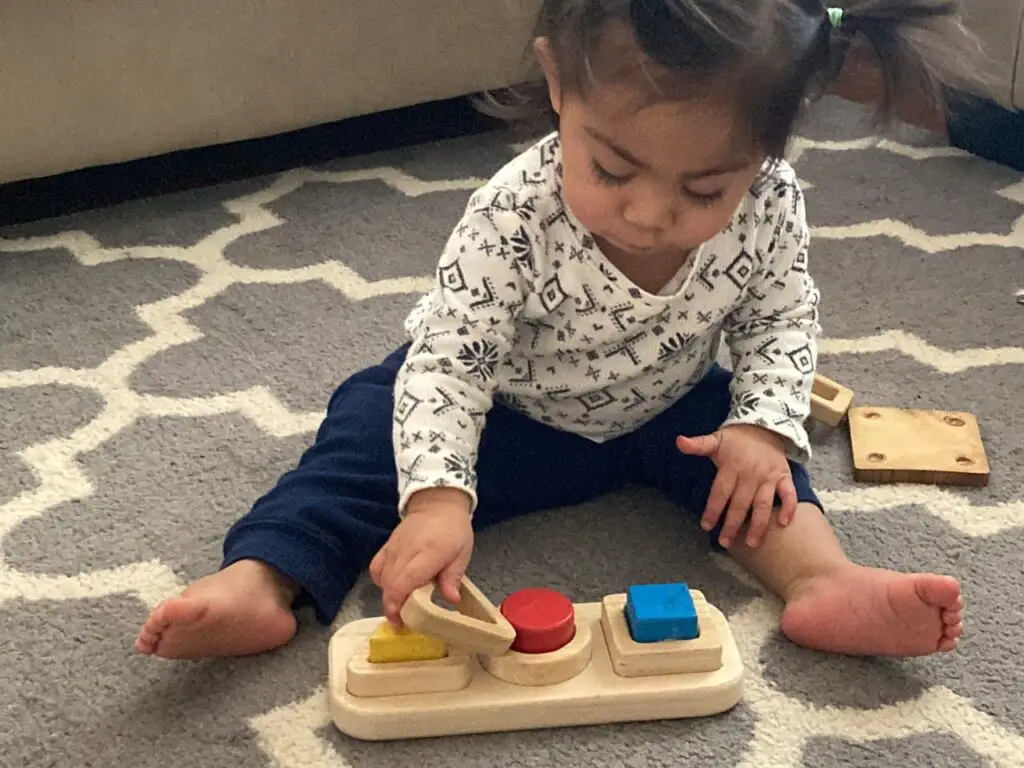
5. The Montessori sensitive period for small objects (age 1 to 3)
The sensitive period for small objects begins around one year old and continues until around three years old. During this time, children are highly interested in exploring and manipulating small objects, and they are eager to understand the relationships between objects and their functions.
Children at this stage are naturally drawn to activities such as building with blocks and manipulating small toys, and they enjoy understanding how objects fit together. Block play has so many benefits as described by this article from NAEYC.
Example of sensory period for small objects: Parents and caregivers can support the sensitive period for small objects by providing children with opportunities to engage with small toys, such as blocks and beads. Activities such as working with small tools, such as tweezers and tongs, can also help children to develop their skills with small objects.
6. The Montessori sensitive period for assimilation of images (birth to age 6)
The sensitive period for assimilation of images begins at birth and continues until around six years old. During this time, children are highly attuned to visual stimuli, and they are naturally drawn to images, colors, and patterns.
Children at this stage are eager to understand the relationships between objects and their images, and they enjoy exploring visual information and making connections between images and the real world.
Example of sensory period for assimilation of images: Parents and caregivers can support the sensitive period for assimilation of images by providing children with plenty of opportunities to engage with visually stimulating materials, such as books, paintings, and puzzles.
Activities such as drawing and painting can also help children to develop their visual skills and understanding of images.
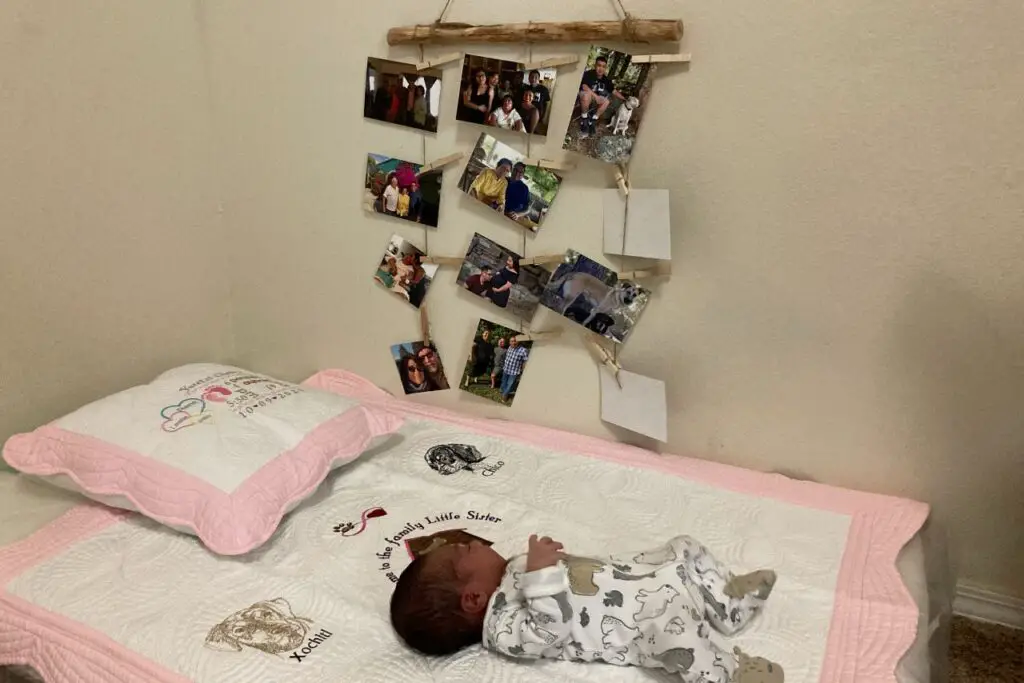
7. The Montessori sensitive period for grace and courtesy (age 2 to 5)
The sensitive period for grace and courtesy begins around two years old and continues until around five years old. During this time, children are highly interested in understanding social rules and norms, and they are eager to learn about etiquette, manners, and appropriate behavior.
Children at this stage are naturally drawn to activities that involve cooperation and communication, and they enjoy learning about social interactions and relationships.
Example of sensory period for grace and courtesy: Parents and caregivers can support the sensitive period for grace and courtesy by providing children with opportunities to engage in social activities and interactions, such as playing with friends and family.
Activities such as role-playing and practicing polite behavior can also help children to develop their skills in grace and courtesy.
8. The Montessori sensitive period for music (age 2 to 6)
The sensitive period for music begins around two years old and continues until around six years old. During this time, children are highly attuned to musical stimuli, and they are naturally drawn to rhythm, melody, and sound.
Children at this stage are eager to explore musical instruments, songs, and musical forms, and they enjoy expressing themselves through music.
Example of sensory period for music: Parents and caregivers can support the sensitive period for music by exposing children to a variety of musical styles and instruments, and encouraging them to participate in musical activities, such as singing and playing instruments.
Activities such as attending concerts and musical events can also help children to develop their appreciation and understanding of music.
9. The Montessori sensitive period for reading (age 3 to 5.5)
The sensitive period for reading begins around three years old and continues until around five and a half years old. During this time, children are highly interested in understanding written language, and they are eager to learn about letters, words, and sentences.
Children at this stage are naturally drawn to activities that involve reading, writing, and storytelling, and they enjoy exploring the relationships between written language and the world around them.
Example of sensory period for reading: Parents and caregivers can support the sensitive period for reading by providing children with access to books and other reading materials, and encouraging them to engage in reading activities, such as storytelling and journaling.
Activities such as visiting the library and participating in reading groups can also help children to develop their reading skills.
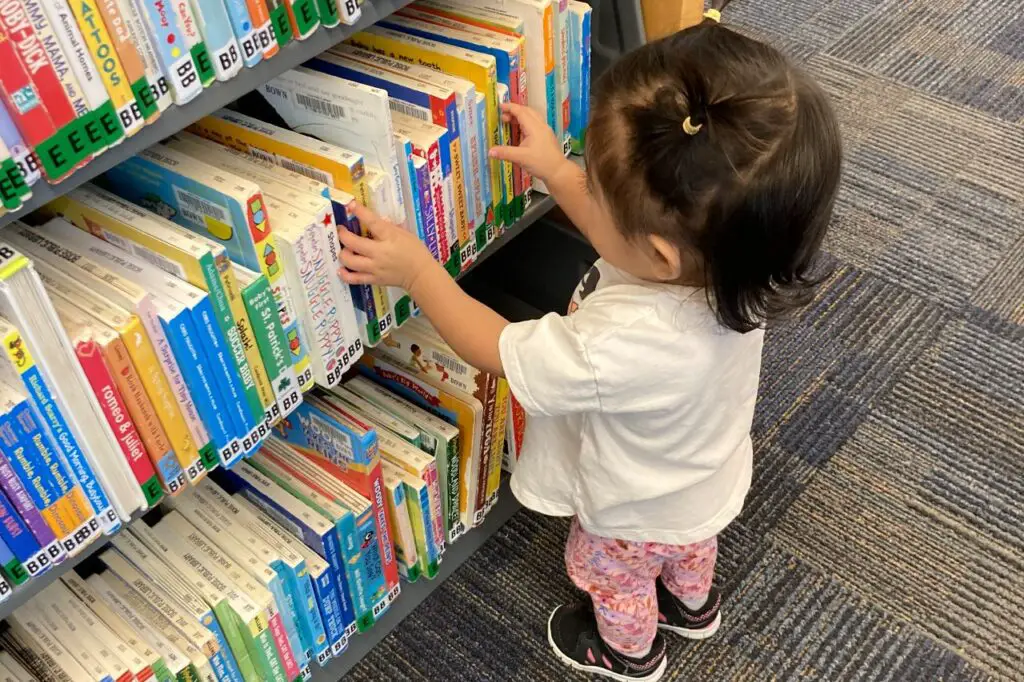
10. The Montessori sensitive period for writing (age 3.5 to 5.5)
The sensitive period for writing begins around three and a half years old and continues until around five and a half years old. During this time, children are highly interested in the act of writing, and they are eager to learn about the relationships between written language and the world around them.
Children at this stage are naturally drawn to activities that involve writing, such as letter formation, drawing, and writing stories.
Example of sensory period for writing: Parents and caregivers can support the sensitive period for writing by providing children with access to writing materials, such as pencils, paper, and journals. Activities such as dictation and storytelling can also help children to develop their writing skills.
11. The Montessori sensitive period for mathematics (age 4 to 6)
The sensitive period for mathematics begins around four years old and continues until around six years old. During this time, children are highly interested in understanding mathematical concepts and relationships, and they are eager to explore mathematical ideas and problems.
Children at this stage are naturally drawn to activities that involve numbers, shapes, and patterns, and they enjoy finding solutions to mathematical problems and puzzles.
Example of sensory period for math: Parents and caregivers can support the sensitive period for mathematics by providing children with opportunities to engage in mathematical activities, such as counting, sorting, and measuring.
Activities such as playing with blocks and puzzles can also help children to develop their mathematical skills and understanding. In addition, introducing children to simple mathematical concepts, such as addition and subtraction, can help to lay the foundation for more complex mathematical ideas in the future.
Montessori sensitive period chart
Below is a chart that can help you identify the age at which the sensory periods of Montessori occur.
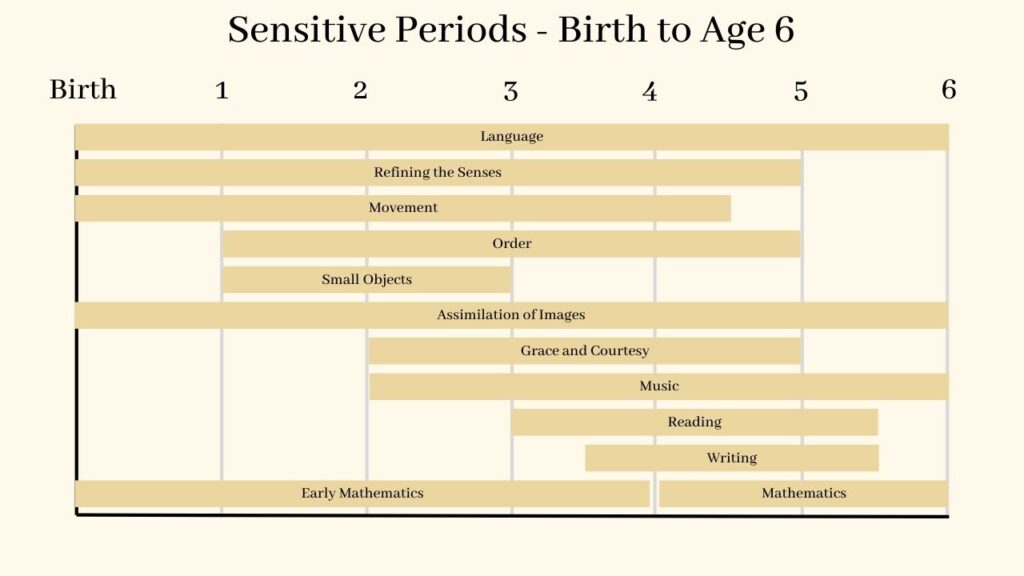
Why is it useful to know when the sensitive period in Montessori occurs?
Knowing when Montessori sensitive periods occur is useful because it allows educators and parents to understand the unique opportunities and challenges that children face at different stages of their development.
This knowledge can be used to create an educational environment that is tailored to the needs of each child and that takes advantage of the unique window of opportunity that each sensitive period presents.
For example, if an educator knows that a child is in a sensitive period for language development, they can create an environment that is rich in language experiences and that provides opportunities for children to hear and use language in meaningful ways.
This can help the child to make rapid progress in their language skills and to develop a strong foundation for future learning.
In a similar manner, recognizing and supporting the sensitive periods for movement, order, and other areas of development can help children to develop the skills and abilities that are essential for success in school and in life.
By understanding the timing and nature of these sensitive periods, educators and parents can create an educational environment that is responsive to the needs of each child and that supports their optimal development.
How to help your child learn the most through each sensitive period of Montessori
You can support your child through the Montessori sensitive periods in a number of ways:
Provide a nurturing environment. Create a safe and supportive environment for your child that allows them to explore and learn at their own pace. This can include setting up a play area with age-appropriate toys and materials and encouraging your child to be active and engaged in their environment.
Observe your child. Observe your child and look for signs that they are entering a sensitive period of development. Pay attention to their interests and focus, and look for activities that they seem naturally drawn to.
Offer age-appropriate experiences. Provide experiences and activities that are appropriate for your child’s age and development. This can include playing with toys, reading books, and participating in creative activities.
Encourage exploration. Encourage your child to explore and experiment with their environment. Allow them to make mistakes and to learn from their experiences.
Be patient. Remember that Montessori sensitive periods of development can last for varying lengths of time, and it is important to be patient and supportive of your child as they go through these periods.
Offer positive reinforcement. Encourage and support your child’s efforts and achievements, and provide positive reinforcement for their efforts and progress.
Provide opportunities for practice. Provide opportunities for your child to practice and develop their skills and abilities. This can include offering activities and experiences that are specifically designed to support their development during a particular sensitive period of development.
Montessori sensitive periods of development FAQ
What is an example of a sensitive period in child development?
An example of a sensitive period in child development is the “language sensitive period.” This period occurs from birth to 6 years and involves a child’s heightened sensitivity to and interest in language, speech, and communication.
During this period, children are naturally drawn to listening to stories, songs, and conversation, and they are able to absorb new words and understand their meanings with great ease. They may also begin to develop their own language skills and begin speaking, even if initially in simple phrases or sounds.
It is important to note that sensitive periods are not the same for every child and may vary in length, intensity, and timing. However, recognizing and supporting a child during their sensitive periods can enhance their learning and development.
Why is this sensitive period so important?
Sensitive periods in child development are important because they represent unique windows of opportunity for children to learn and develop specific skills and abilities. During a sensitive period, children have a heightened interest and ability to learn, and they are able to absorb new information and skills with great ease.
This makes sensitive periods an optimal time for children to be exposed to certain experiences and activities that support their growth and development.
For example, during the language sensitive period, children have a heightened sensitivity to and interest in language, speech, and communication. This makes it an ideal time for children to be exposed to a rich and varied language environment, with opportunities to listen to stories, songs, and conversation, and to engage in language-rich play and interaction with others.
Recognizing and supporting children during their sensitive periods can enhance their learning and development, and provide a foundation for future success and growth. On the other hand, missing or neglecting a sensitive period can limit a child’s potential and make it harder for them to catch up later.
Is walking a sensitive period in Montessori?
Walking is not considered a sensitive period in the Montessori approach, but it is considered a significant milestone in a child’s development.
According to Montessori, the sensitive period for movement occurs from birth to 4 1/2 years and is focused on a child’s increased sensitivity to and interest in movement, physical activity, and coordination.
This sensitive period includes the development of fine and gross motor skills, such as crawling, reaching, and manipulating objects.
What is the difference between critical and sensitive periods in childhood development?
Critical periods and sensitive periods are two important concepts in child development.
Critical periods refer to specific stages in a child’s development when the brain is most receptive to certain experiences and when exposure to those experiences is essential for proper development.
For example, a critical period for language development occurs during the first few years of life, when the brain is highly receptive to language input and exposure to language is critical for the development of language skills. If a child misses a critical period for a certain skill, it becomes much harder to develop that skill later in life.
Sensitive periods, on the other hand, refer to specific stages in a child’s development when they are particularly receptive and responsive to learning in a particular area. For example, a sensitive period for movement occurs during the first few years of life, when children have a heightened sensitivity to and interest in movement, physical activity, and coordination.
During a sensitive period, children have a heightened ability to absorb and learn new information and skills, but if a sensitive period is missed, it does not necessarily result in a permanent deficit.
Both critical periods and sensitive periods are important to be aware of as they can help guide parents, educators, and other care providers in providing appropriate experiences and support to help children reach their full potential.
However, the key difference is that critical periods are more critical in nature, with the potential for permanent consequences if missed, while sensitive periods are more focused on optimizing learning opportunities.
Do children learn best during sensitive periods of development?
According to the Montessori approach, children do learn best during sensitive periods of development. During these periods, children have a heightened ability to absorb and learn new information and skills and are naturally drawn to activities that support their development.
This is because the brain is most receptive and responsive to learning in a particular area during these sensitive periods, making the learning process easier and more natural.
For example, during the sensitive period for language development, which occurs from birth to 6 years, children have a heightened ability to absorb and learn new words and language concepts. During this period, they are naturally drawn to listening to language, repeating words and phrases, and exploring the sounds and rhythm of language.
Similarly, during the sensitive period for movement, which occurs from birth to 4 1/2 years, children have a heightened sensitivity to and interest in movement, physical activity, and coordination. This is a time when they naturally engage in activities such as crawling, reaching, and manipulating objects, which support the development of fine and gross motor skills.
By providing appropriate experiences and support during these sensitive periods, children are able to learn and develop new skills with greater ease and effectiveness, setting the foundation for their future learning and development.
Final thoughts on the importance of Montessori sensitive periods
Montessori sensitive periods of development offer a unique and valuable understanding of the way children learn and grow.
By recognizing and supporting these sensitive periods, parents and caregivers can help children to reach their full potential and to develop a love for learning that will last a lifetime.

Hello, I am Leslie. I am on a mission to help you support the growth and development of your child. With the right tools and proper guidance, you can navigate parenthood with confidence and assertion! My goal is to equip you with knowledge to help you construct a strong foundation for your child’s life.
Suggested articles
You May Also Like

What is a Topponcino? 7 reasons why you’ll love it
A Topponcino is a thin and soft Montessori baby support pillow that allows you to comfortably and safely hold and carry your newborn.

Best Stroller For Disney: 5 Disney-Approved Options
Disneyland and Disney World have very strict policies about the type of strollers you can bring. Here are the best strollers for Disney.

Best Mattress For Montessori Floor Bed: Top 7 Picks
Floor beds are a great option to help your child learn lifelong skills. See our safest floor bed for baby.
